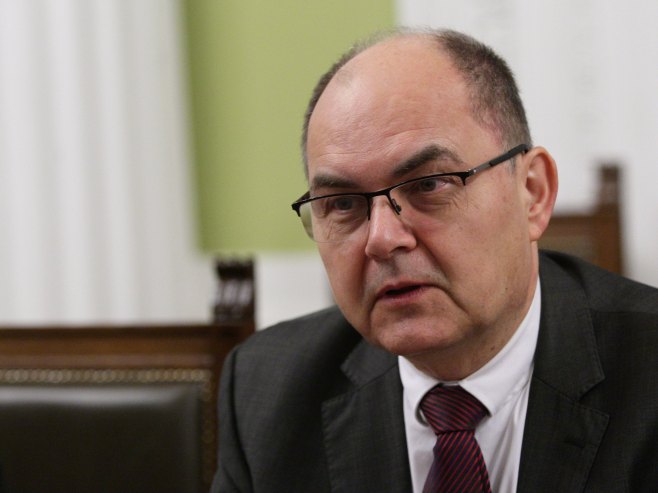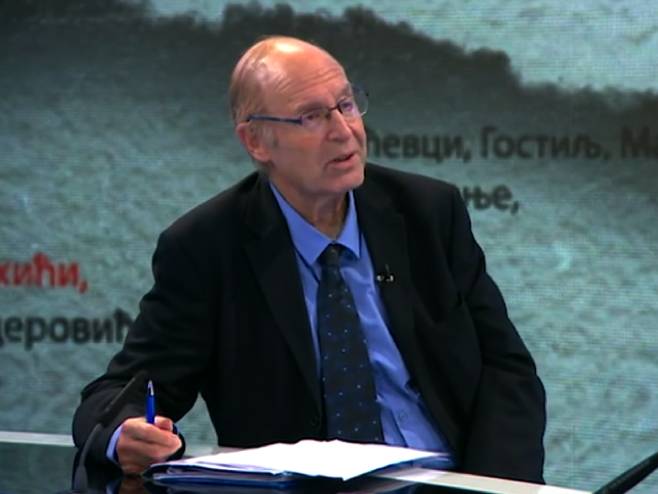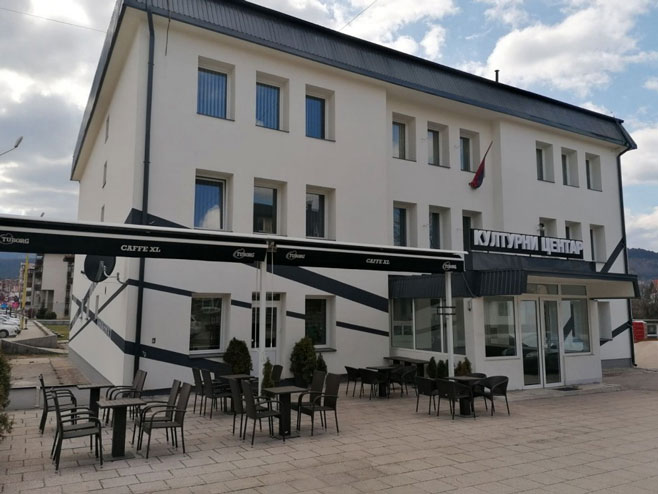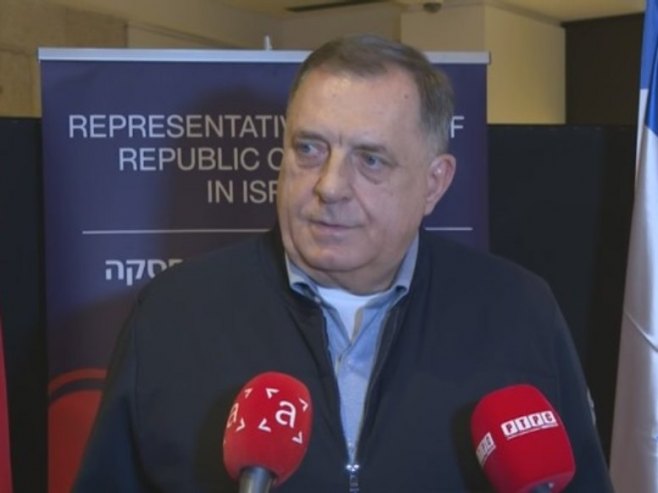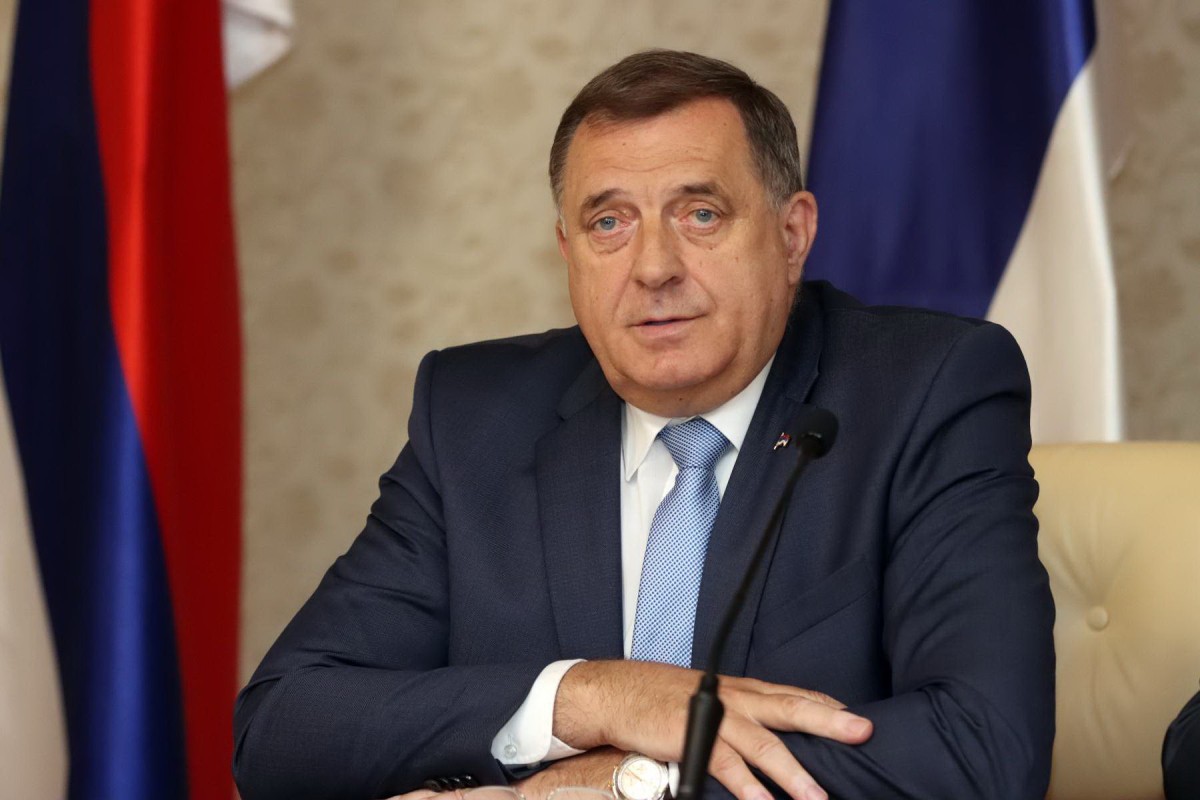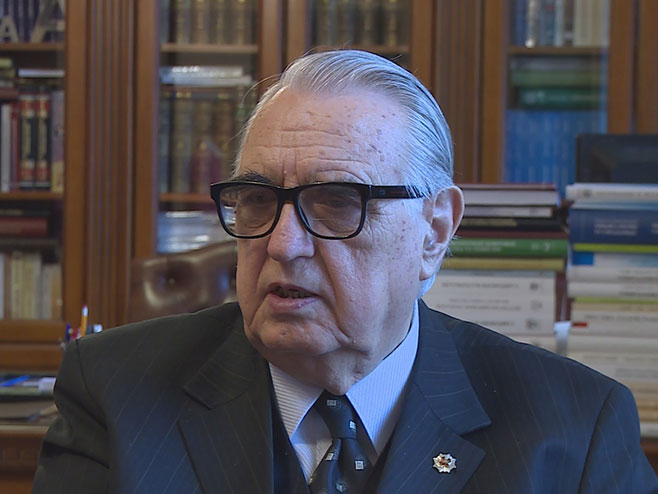The Americans have marked him “canceled.” The OHR and the Bonn powers are still needed — but only as a last resort. We’ll see for whom…
High Representative Christian Schmidt has ended his career in Bosnia and Herzegovina, it has been confirmed by Politicki.ba. He will leave his post.
His resignation is the result of persistent efforts by Milorad Dodik’s circle, and also the blows carried out in parallel by the structures led by Dragan Čović.
“It won’t happen immediately, to avoid it being obvious — but Schmidt is history,” one diplomatic source told Politicki.ba. Another stated that his departure is expected in the first half of next year.
Sources say this does not mean the abolishment of the Office of the High Representative or the Bonn powers. They will remain — but only as a last resort.
For now.
In the meantime, a new High Representative will be selected — one who must receive approval from the UN Security Council! That is the plan, from Washington.
Warnings from London and Berlin
Germany and the United Kingdom are particularly opposed to this plan. Official London, and especially Berlin, have warned that implementing such a “deal” would be disastrous for the previous policy of the international community — and not only in Bosnia and Herzegovina. A new High Representative shaped by Dodik’s preferences would have no authority. Already ignored by Bosnian Serbs, and he would be met with hostility from Bosniaks.
Moreover, implementing the agreement would essentially mean the euthanization of the OHR.
A major question remains about what will happen to the numerous decisions made by previous High Representatives.
This change in the leadership of the OHR also casts doubt on the fate of some of the key decisions made under its mandate — particularly those regarding state property.
High Representatives have thus far more or less consistently upheld that issue. Now that is also being called into question.
Schmidt has already taken the first step in that direction by announcing a “softening” of the previous High Reps’ decisions regarding that matter.
As reported yesterday by Istraga.ba, at the request of the Federation’s Prime Minister Nermin Nikšić, Schmidt initiated a review of the ban on disposal of state property.
“The question of state property stands out as one that requires our attention. The current situation, in which disposal of that property is forbidden due to a decision of the BiH Constitutional Court, places those who obey the rules at a disadvantage. Because of a higher level of compliance with the Court’s decision and the ban on disposal, the Federation of BiH is more exposed to negative economic consequences which could lead to complete stagnation. In the current political context, it is unrealistic to expect a comprehensive state-level solution on allocation of state property with the consent of the RS authorities. However, for Bosnia and Herzegovina, it is important that the disposal ban be eased in order to ensure that authorities who respect the rule of law are not penalized and prevented from initiating development projects,” Schmidt said.
In the continuation of the statement he added that the current legal situation has caused serious legal uncertainty, even blocking implementation of projects at the levels of the entities, cantons, and local governments.
“This is especially the case in the Federation of BiH, where authorities are striving to respect the so-called disposal ban and relevant decisions of the BiH Constitutional Court, while the RS authorities openly continue to violate them. That is why calls by local authorities in the Federation for rapid resolution of this urgent issue have increased, including amendments to the disposal ban. These amendments are said to enable implementation of many currently blocked projects and help mitigate negative economic consequences,” stated Schmidt.
This part of the story vividly illustrates the absurdity of the High Representative’s policy! He began his mandate by strengthening protection of state property — and ends it eroding that very decision!
Empty hopes or hollow story
Schmidt was appointed High Representative on 1 August 2021.
Before taking office, he made rare public appearances with promises of “renewing the rule of law” and “comprehensive fight against corruption.”
As a lawyer, he knew what should be done — yet, as High Representative, he did not do it. With full access to the Bonn powers, he used them selectively — if at all — for genuine strengthening of the fight against corruption.
The first decision he signed using the Bonn powers came on 12 April 2022 — imposing changes to the Law on the Temporary Ban on Disposal of State Property of Bosnia and Herzegovina.
Unlike his predecessor Valentin Inzko, who for seven of his record 11 years in office never used this extraordinary instrument, Schmidt increasingly relied on the Bonn powers. In his first year alone, he invoked them eight times.
In that year, he imposed two of the most important and far-reaching decisions that still complicate relations in Bosnia and Herzegovina, particularly in the Federation entity.
On election night 2 October 2022, he changed the BiH Election Law and the Constitution of the F BiH entity — effectively suspending the political will of Bosniaks for 24 hours and boosting HDZ Croatia’s power by giving them a disproportionate ability to distribute delegates in the House of Peoples of the F BiH entity. The unprecedented mass destruction of democracy also triggered protests in Sarajevo and high tensions. That decision has not and will not be reversed — and in some cantons a single Croatian vote carried more weight than a dozen Bosniak ones.
Schmidt did not simply use the Bonn powers indiscriminately. His public appearances routinely triggered strong reactions and scandals.
Politicki.ba reported this again two days ago — and you can find the full coverage in the link.
Schmidt appears likely to leave next year, arriving and departing amidst controversy.
He came by the will of Angela Merkel — at the time putting out a coalition fire in the Christian Social Union. A Bavarian politician got the job in Bosnia to satisfy ambitions and stabilize a coalition in Germany — not because of unique qualifications. His power in BiH was determined more by circumstance than by individual capability.
Murphy: The real High Representative
The most influential High Representative was arguably Michael Murphy, U.S. Ambassador. If Murphy had had his say, Schmidt would have been imposing decisions almost daily. But the German did not act so aggressively — yet, he listened to Murphy.
When Murphy left, Schmidt’s authority evaporated.
Donald Trump came to power in the U.S. soon after. The team around him, which intervened in Balkan affairs, was not favorable — but they were favorable to Dodik and Čović. Although they attempted to support the Bosnian Croat leader’s ambitions, Čović’s alliance with Dodik was much stronger.
Schmidt tried to find refuge on this side of the Atlantic — in European states. The EU reluctantly embraced his tutelage. The UK wanted to fill the vacuum created by the American exit. But the gap proved bottomless!
The breakdown of the international community’s functioning had become evident by the end of last year. On 21 November 2024 Schmidt imposed the “Order on Support for the Functioning of the National and University Library of BiH and other major cultural institutions of BiH.” That order remains largely inert on paper.
17 July this year was decisive. Schmidt — with European backing — invoked the Bonn powers again. He imposed changes to the BiH Budget Law.
The Americans reacted sharply:
“Enough!” was the message from Washington.
Trump’s new mantra
Trump’s administration’s “red line” is now operational.
Schmidt is no longer considered “High Representative” by them.
The signs had been visible earlier. The U.S. regularly remained silent at Peace Implementation Council meetings, failing to take a stand on Schmidt’s moves or major events in BiH.
Speculation began circulating in the media that the U.S. may withdraw from the OHR. Delayed U.S. funding — vital to the institution’s functioning — arrived as part of a package that conveyed an unspoken but clear message: Schmidt must go, OHR and the Bonn powers should stay — but under our terms.
Christian Schmidt did not intentionally destroy the OHR.
This institution has been, for years, torn apart by diplomats themselves.
There are countless examples, and former High Representatives could author novels of scandals.
Schmidt may have had good intentions, but his actions rarely matched them — indeed, the opposite!
The process of selecting his successor has not yet started. The main deputy of Christian Schmidt is U.S. career diplomat Louis J. Crishock. He is also supervisor for Brčko.
Source: Politički.ba



